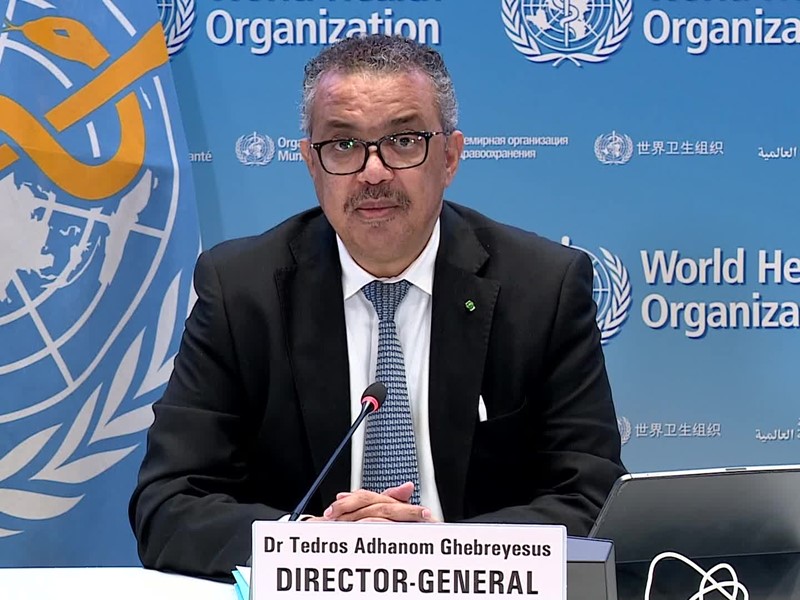WHO Director−General’s opening remarks at the media briefing on COVID−19 − 1 February 2022

Good morning, good afternoon and good evening.
This past Sunday marked World Neglected Tropical Diseases Day.
Neglected tropical diseases affect the poorest and most marginalized communities, and the COVID-19 pandemic has made things worse, badly disrupting services to prevent, detect and treat them.
Nevertheless, with support from WHO and our partners, five countries eliminated a neglected tropical disease last year: Gambia and Myanmar eliminated trachoma; Côte d’Ivoire and Togo eliminated human African trypanosomiasis, and Malawi eliminated lymphatic filariasis.
And only 14 cases of Guinea worm disease were reported last year from 4 countries, taking us ever closer to the eradication of this ancient disease.
This past Sunday also marked two years since I declared a public health emergency of international concern – the highest level of alarm under international law – over the spread of COVID-19.
At the time, there were fewer than 100 cases and no deaths reported outside China.
Two years later, more than 370 million cases have been reported, and more than 5.6 million deaths – and we know these numbers are an underestimate.
Since Omicron was first identified just 10 weeks ago, almost 90 million cases have been reported to WHO – more than were reported in the whole of 2020.
We are now starting to see a very worrying increase in deaths, in most regions of the world.
We’re concerned that a narrative has taken hold in some countries that because of vaccines, and because of Omicron’s high transmissibility and lower severity, preventing transmission is no longer possible, and no longer necessary.
Nothing could be further from the truth.
More transmission means more deaths. We are not calling for any country to return to so-called lockdown. But we are calling on all countries to protect their people using every tool in the toolkit, not vaccines alone.
It’s premature for any country either to surrender, or to declare victory.
This virus is dangerous, and it continues to evolve before our very eyes. WHO is currently tracking four sub-lineages of the Omicron variant of concern, including BA.2.
This virus will continue to evolve, which is why we call on countries to continue testing, surveillance and sequencing. We can’t fight this virus if we don’t know what it’s doing.
And we must continue to work to ensure all people have access to vaccines.
At the same time, it’s also clear that as this virus evolves, so vaccines may need to evolve.
Variants of SARS-CoV-2 may continue to escape neutralizing antibodies induced by vaccines against prior variants.
In addition, the reservoir of beta coronaviruses is large, and new crossovers to humans is likely.
If we prepare now, the time required for large scale vaccine manufacture will be reduced and lives will be saved.
On Friday last week, WHO held our latest global consultation on COVID vaccines research, and on the future need for vaccines that are effective across a broad spectrum of coronaviruses.
We continue to engage with scientists from the public and private sectors to exchange the latest information and guide the future development of new vaccines.
It’s one example of how even as we support countries to fight the pandemic now, we are also working to prepare for the future, and to address its longer-term consequences.
That includes the challenge of medical waste.
Today, WHO published a new report on the burden of medical waste from the pandemic, threatening human and environmental health and exposing the need to improve waste management.
Health workers and members of the public rely on huge amounts of personal protective equipment, tests, chemicals, syringes, needles, and other disposable products to protect ourselves and others.
But after we have used it, most of it ends up as waste.
30% of health facilities globally, and 60% in the least developed countries, are not equipped to handle existing medical waste loads, let alone the additional COVID-19 load.
This potentially exposes health workers to needle stick injuries, burns, infection, and affects communities living near poorly-managed landfills and waste disposal sites.
The report makes a set of recommendations, including using eco-friendly packaging and shipping, safe and reusable gloves and medical masks, recyclable or biodegradable materials, and cleaner waste treatment technologies and recycling.
The report is a reminder that although the pandemic is the most severe health crisis in a century, it is connected with many other challenges that countries face.
Last week, WHO’s Executive Board met to discuss that huge range of challenges, and how to address them.
In particular, our Member States asked us to develop a set of proposals on strengthening the global health architecture for emergency preparedness, response and resilience, to present to the World Health Assembly in May.
Seeing countries come together to discuss shared solutions to shared problems reminded me of our unity as one species sharing one planet. But it also reminded me of the richness of our diversity.
And in that spirit, I wish everyone who celebrates it a joyous Lunar New Year.
Christian, back to you.





